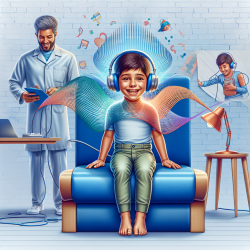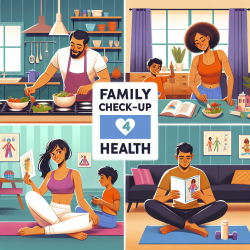Developmental Language Disorder (DLD) is a term agreed upon by experts to describe unexplained language problems in children. However, the journey to this consensus was not straightforward. A recent study titled "Why is it so hard to reach agreement on terminology? The case of developmental language disorder (DLD)" sheds light on the challenges and considerations that shaped this agreement. This blog will explore how practitioners can implement the outcomes of this research to improve their skills and ultimately create better outcomes for children.
Understanding the Terminology Debate
The CATALISE project utilized the Delphi method to achieve consensus on terminology for children’s language disorders. One of the key outcomes was the adoption of the term 'Developmental Language Disorder' (DLD) instead of 'Specific Language Impairment' (SLI). This change was driven by the need for a term that would be widely accepted and accurately represent the severity and nature of the language issues faced by children.
Why Labels Matter
Labels play a crucial role in how we understand and address language disorders. They help in:
- Communicating efficiently among professionals
- Planning and allocating resources for services
- Raising awareness and understanding among the public
However, labels also come with risks, such as the potential for stigmatization. The term 'disorder' was chosen because it aligns with terminology used in DSM-5 and ICD-11, and it communicates the seriousness of the issue effectively.
Criteria for Diagnosis: Focus on Prognosis
The research emphasizes that DLD should be diagnosed based on poor prognosis, which means identifying children whose language problems are unlikely to resolve without intervention. This focus helps in allocating resources more fairly and ensures that children with the most severe problems receive the necessary support.
Objective vs. Subjective Measures
One of the debates highlighted in the research is the balance between objective standardized tests and subjective qualitative observations. While standardized tests provide reliable and objective data, they may not capture all aspects of a child's language problems. Functional assessments and observations are crucial for a comprehensive understanding.
Differentiating Conditions
The research also addresses the need to distinguish between DLD and language disorders associated with other conditions, such as brain injury or autism spectrum disorder. This distinction is essential for targeted intervention strategies and for understanding the multifactorial nature of DLD.
Implications for Practitioners
For practitioners, the outcomes of this research offer several actionable insights:
- Adopt the term DLD to ensure consistency and clarity in diagnosis and communication.
- Focus on prognosis when diagnosing DLD to allocate resources effectively.
- Use a combination of standardized tests and qualitative assessments for a comprehensive evaluation.
- Distinguish between DLD and language disorders associated with other conditions for targeted interventions.
Implementing these insights can lead to more accurate diagnoses, better-targeted interventions, and ultimately, improved outcomes for children with DLD.
To read the original research paper, please follow this link: Why is it so hard to reach agreement on terminology? The case of developmental language disorder (DLD).










